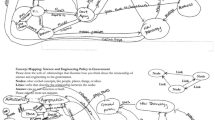Abstract
What used to be the practice of science and research – the understanding of natural phenomena – has undergone substantial alterations in the past century. As an aspect of society, science and its practitioners are not beyond the realm of contemporary transformations taking place in society driven by numerous causes, mainly of an economic nature. The purpose of this article is to present to young and enthusiastic students, who are consumed by their curiosity to investigate natural phenomena and therefore plan to join the academic ranks to perform research, what they will find in today’s academic environment. In addition, practical advice will be presented so that the variety of obstacles that we find in this day and age can be minimised so that the true purpose of the scientist – to think, to reflect and to perform experiments and analysis of natural phenomena – can be achieved, if at least to some extent. This article can be informative to some professional academics, although they might already know and have experienced everything that will be presented in this narrative.
Similar content being viewed by others
References
Perez Velazquez JL (2019) The rise of the scientist-bureaucrat—survival guide for researchers in the 21st century. Springer, Cham
Johansson J (2016) Battling the bureaucracy hydra. Science 351:530. https://doi.org/10.1126/science.351.6272.530
Greenberg DS (2007) Science for sale—the perils, rewards, and delusions of campus capitalism. University of Chicago Press, Chicago
Scholz F (2023) Electrochemistry and education. J Solid State Electrochem. https://doi.org/10.1007/s10008-023-05586-8
Hofstadter DR (1979) Gödel, escher, bach: an eternal golden braid. Basic Books, New York
Molinié A, Bodenhausen G (2010) Bibliometrics as weapons of mass citation. Chimia 64:78–89. https://doi.org/10.2533/chimia.2010.78
Ernst RR (2010) The follies of citation indices and academic ranking lists. Chimia 64:90. https://doi.org/10.2533/chimia.2010.90
Hicks D, Wouters P, Waltman L et al. (2015) Bibliometrics: the Leiden Manifesto for research metrics. Nature 520:429–431. https://doi.org/10.1038/520429a
Szillard L (1991) The voice of the dolphin and other stories. Stanford University Press, Stanford
Park M, Leahey E, Funk RJ (2023) Papers and patents are becoming less disruptive over time. Nature 613:138–144. https://doi.org/10.1038/s41586-022-05543-x
Horgan J (1996) The end of science: facing the limits of knowledge in the twilight of the scientific age. Abacus, London
Alberts B et al. (2014) Rescuing US biomedical research from its systemic flaws. Proc Natl Acad Sci USA 111:5773–5777. https://doi.org/10.1073/pnas.1404402111
Cyranoski D et al. (2011) Education: the PhD factory. Nature 472:276–279. https://doi.org/10.1038/472276a
Spread your wings—Many junior scientists need to take a hard look at their job prospects (2017). Nature 550: 429. https://www.nature.com/articles/550429a
Asch SE (1951) Effects of group pressure upon the modification and distortion of judgment. In: Guetzkow H (ed) Groups, leadership and men. Carnegie Press, Pittsburgh. https://www.simplypsychology.org/asch-conformity.html
Glaser E (2015) Bureaucracy: why won’t scholars break their paper chains?. The Times Higher Education. https://www.timeshighereducation.com/features/bureaucracy-why-wont-scholars-break-their-paper-chains/2020256.article
Ginsberg B (2011) The fall of the faculty: the rise of the all-administrative university and why it matters. Oxford University Press, Oxford
Author information
Authors and Affiliations
Contributions
JLPV wrote the whole thing
Corresponding author
Ethics declarations
Competing interests
The authors declare no competing interests.
Additional information
Publisher’s Note
Springer Nature remains neutral with regard to jurisdictional claims in published maps and institutional affiliations.
Rights and permissions
Springer Nature or its licensor (e.g. a society or other partner) holds exclusive rights to this article under a publishing agreement with the author(s) or other rightsholder(s); author self-archiving of the accepted manuscript version of this article is solely governed by the terms of such publishing agreement and applicable law.
About this article
Cite this article
Perez Velazquez, J.L. On entering academia: advice to students in today’s corporate academic world. ChemTexts 9, 11 (2023). https://doi.org/10.1007/s40828-023-00183-8
Received:
Accepted:
Published:
DOI: https://doi.org/10.1007/s40828-023-00183-8




